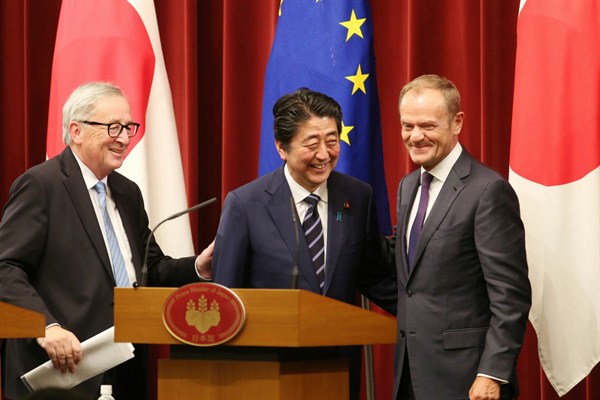Earlier this month, Japan and the European Union concluded a mega-free trade deal that, when ratified, is expected to provide significant benefits to both sides. But as important as the economics of the deal is its symbolism, demonstrating a commitment to an international trade regime that has been passing through a zone of turbulence over the past year, largely due to arcane protectionist measures from the Trump administration. The U.S. has imposed large tariffs and threatened more on a wide range of products and countries, including allies such as Japan, Canada, Mexico and the European Union.
Washington’s turn to protectionism in its bilateral trade relations has been exacerbated by the current administration’s aversion to multilateral trade deals, which President Donald Trump has demonized as “unfair” to American interests. The most salient examples of this so far have been the Trump administration’s withdrawal from the Trans-Pacific Partnership, or TPP, and its sharp-edged negotiations with Mexico and Canada over updating the North American Free Trade Agreement, or NAFTA.
Against this backdrop, Japan, under the leadership of Prime Minister Shinzo Abe, has—perhaps unexpectedly—rushed to fill the void and bolster support for the international trade regime. Brussels has also been actively pursuing alternative partners to an increasingly protectionist U.S.: The deal with Japan came mere days after the trade bloc’s top officials met with Chinese leaders in Beijing amid talk of deepening the EU’s strategic relationship with China.

